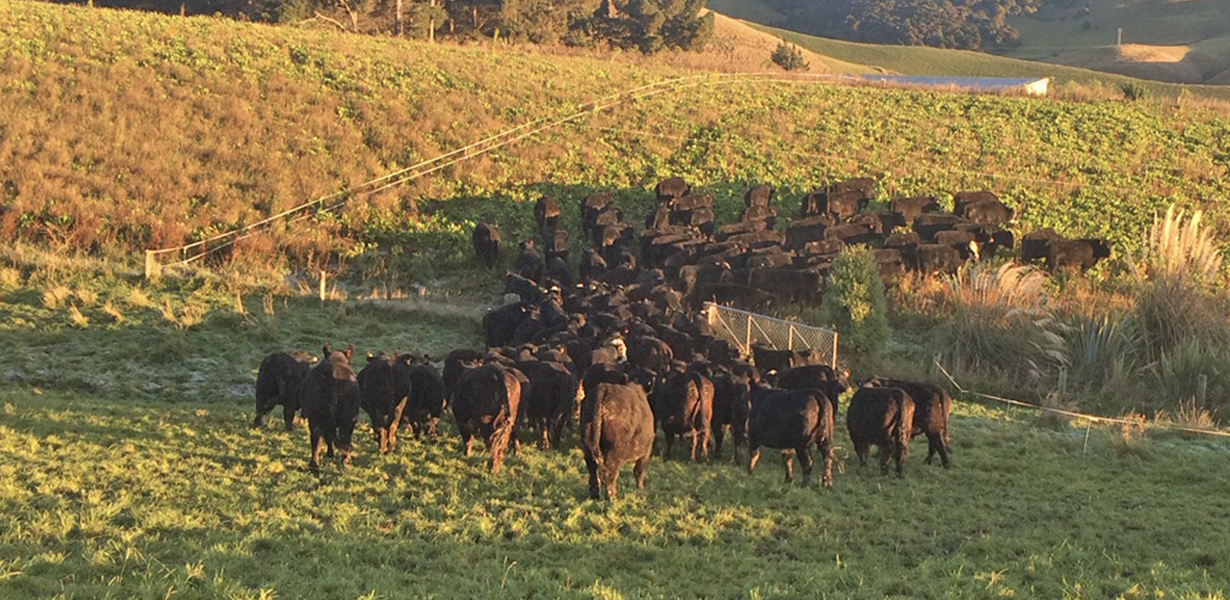The IWG consents applied for can generally be for up to the next three to five years, with applications in by 1 May. The average time between applications being lodged and granted is five days.
A series of successful workshops across nine venues around Otago has just been completed by ORC staff, and were well attended, with two more to be run in Milton and Lawrence. Separately, the results from the ORC’s first farm flyovers around North Otago are expected shortly.
There were also more than 20 sessions held in recent months with catchment and farmer groups, and one-on-one visits.
Consents granted so far for more than 10,000 hectares
As of the end of March, ORC’s Acting Manager Consents, Alexandra King says there have been 152 IWG applications, with 129 granted and the balance being actively processed, covering in total more than
10,000 hectares for winter 2023.
“Applications have been open for more than six months, but it’s down to a couple of weeks left now,” she says.
“The number of applications coming in has increased steadily over the last month which is great, but we’re encouraging people to apply and be ready for winter,” Mrs King says.
The new regulations around IWG started on 1 November 2022 and applications for winter 2023, and beyond, should be in by mid-April 2023 to ensure consents are in place by 1 May 2023.
“The consents team is there to help with advice on the IWG consent process, farm plans and management practices,” she says.

Consent should cover multiple years; three to five
Ms King says the application for consent should cover multiple years, with any consents then granted for a specific duration.
“In most instances we’re encouraging farmers to apply for consent for the next three to five years,” she says.
Farmers will then need to update their management plan annually, telling ORC where they have grazed in the previous year, and where they plan to graze during the next season. They only need to apply for the consent once.
While farmers need to apply for the paddocks they’re likely to graze over the next few years, actual paddock selection and the day to day farm operation is still in the farmer’s hands.
She says farmers can still undertake the activity without consent, but only if they can meet the permitted criteria in the regulations.
Site visits and working with Dairy NZ, Beef + Lamb NZ, Deer NZ, Fonterra, Federated Farmers
Mr Cummings says aside from flyovers, ORC will be actively monitoring the IWG season with some site visits, and will be responding to complaints and other information received. Complaints or information about IWG practices, or any other activities can be made to ORC’s Pollution Hotline, 0800 800 033.
“We’ll be focusing on some areas for greater attention based on criteria including historic satellite imagery combined with where farmers haven’t yet obtained consent,” Mr Cummings says.
ORC’s Manager Compliance Tami Sargeant says staff are working closely with Dairy NZ, Beef + Lamb NZ, Deer NZ, Fonterra and Federated Farmers to support farmers.
“We want to ensure farmers have the information and advice they need to manage their farm with minimal risk to the environment,” she says.
Flyovers and IWG
ORC’s Mike Cummings says the first round of flyovers, looking at any instream disturbances, forestry and IWG areas, has been completed and staff are currently processing the photographic observations.
“We’ll be sharing a broad overview of our observations with catchment groups and industry. Over the next week or two, Council may also be sending letters, calling or visiting particular properties if further context is needed for observations made from the air,” Mr Cummings says.
In particular for IWG, the goal of the flyover was to provide targeted information about rules and timeframes and when they have to be met and to link farmers with further support around this farming practice, before the IWG period starts on 1 May, he says.
Mr Cummings says last year’s flyovers found “a massive positive change” in IWG practices compared to previous years, now that farmers were coming to understand how the rules apply to their practices.
“It was great to see the on-farm changes last year. We’re hoping to see the same level of practice this year, if not better given the level of engagement from the community” he says.
Last two IWG workshops
Milton
27 April 2023, 9:30-11:30am, Toko Rugby Clubrooms, Union Street, Milton
Lawrence
27 April 2023, 1-3pm, Simpson Park Hall, Thurso Street, Lawrence
Attendees should register their interest at: www.orc.govt.nz/iwgworkshops
Catchment Advisors can be contacted on 0800 474 082
Advice can be sought from public.enquiries@orc.govt.nz
Other resources
- ORC OtagoMaps
- IWG Application Form:
- Online (requires registration)
PDF format
Word format
- Intensive Winter Grazing Management plan:
Word format
PDF format
- IWG resource consents application guide video
- Dairy NZ Winter grazing checklist
- Deer NZ Wintering feed systems
- Dairy NZ Break fed wintering guide
- Beef + Lamb New Zealand Winter grazing/ Forage crop grazing
- MPI Intensive winter grazing
